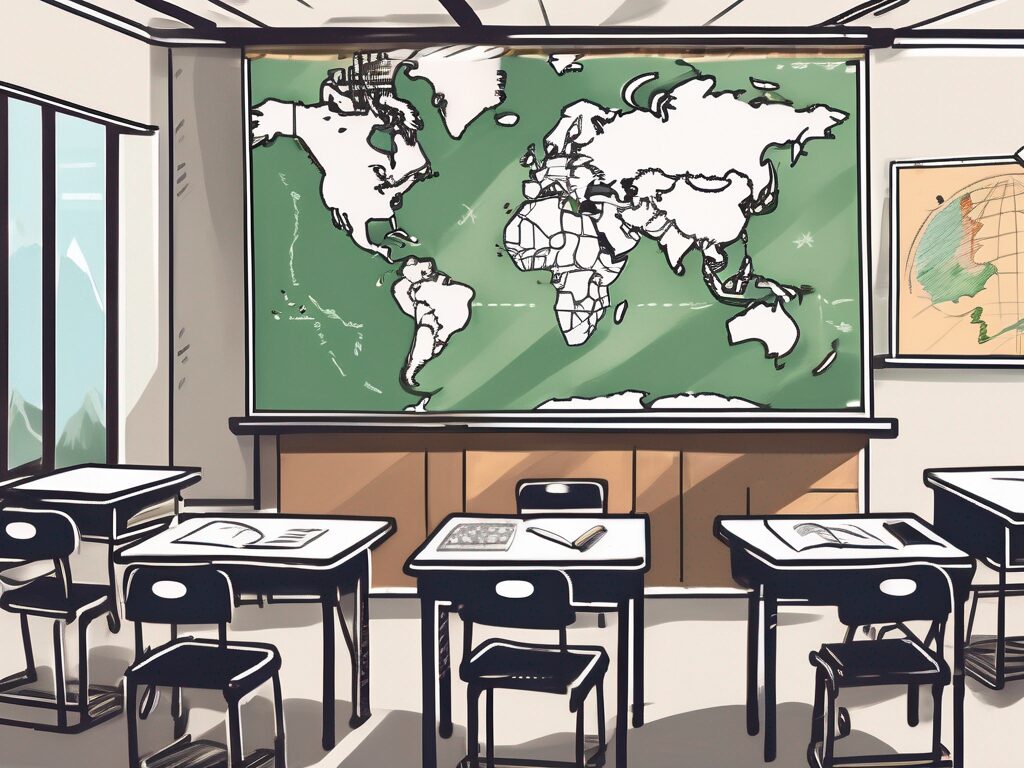Indonesia, the world’s fourth most populous country, faces a unique set of challenges in its education sector. Despite significant progress in recent years, the archipelago nation continues to grapple with issues that hinder the effective delivery of teaching and learning. This article delves into these challenges, providing an in-depth analysis of the current state of education in Indonesia.
Infrastructure and Accessibility
Geographical Challenges
Indonesia’s geographical makeup, with its thousands of islands, presents a significant challenge to the delivery of education. Many schools, particularly in remote and rural areas, lack basic facilities such as electricity, clean water, and adequate classrooms. This is akin to the situation faced by other archipelagic nations, such as the Philippines, where geographical dispersion also hinders educational accessibility.
Moreover, the lack of transportation infrastructure often makes it difficult for students to travel to and from school. In some cases, students have to walk for hours or even cross rivers just to get to school. This not only affects attendance rates but also impacts the quality of learning as students arrive tired and less prepared for lessons.
Insufficient School Facilities
Many schools in Indonesia, especially those in rural and remote areas, are under-resourced. They lack essential facilities such as libraries, science laboratories, and computer labs. This situation is somewhat reminiscent of the challenges faced by schools in rural parts of India, where resources are also scarce.
The lack of adequate facilities hampers the delivery of a comprehensive curriculum, particularly in subjects that require practical application such as science and technology. This, in turn, affects the quality of education and the overall learning experience of students.
Quality of Education
Teacher Quality and Training
Another significant challenge in the Indonesian education sector is the quality of teachers. While there are many dedicated and passionate educators in the country, there is a general lack of qualified teachers, particularly in remote and rural areas.
Teacher training and professional development are also areas of concern. Many teachers in Indonesia have not received adequate training, which affects their ability to deliver effective instruction. This is a common issue in many developing countries, including neighbouring Malaysia, where teacher quality and training are also areas of focus.
Curriculum and Assessment
The Indonesian education system has been criticised for its heavy focus on rote learning and memorisation, rather than critical thinking and problem-solving skills. This is a challenge faced by many Asian education systems, including that of China, where there is a similar emphasis on rote learning.
Furthermore, the assessment system in Indonesia often prioritises academic achievement over other aspects of student development, such as character and creativity. This narrow focus on academic results can limit the holistic development of students and does not necessarily prepare them for the demands of the 21st-century workplace.
Socioeconomic Factors
Income Inequality
Income inequality in Indonesia also plays a role in the education sector. Children from wealthier families generally have access to better educational opportunities compared to those from lower-income families. This is a global issue, evident in countries as diverse as the United States and South Africa, where income inequality also affects educational outcomes.
For instance, wealthier families can afford to send their children to private schools or hire tutors, while those from less affluent backgrounds often have to rely on under-resourced public schools. This disparity contributes to the achievement gap in education.
Child Labour
Child labour is another socioeconomic factor that impacts education in Indonesia. Despite laws against child labour, it remains a reality for many children, particularly in rural areas. This is a problem shared with countries like Bangladesh, where child labour also hinders access to education.
Children who are forced to work often miss out on school or drop out entirely. Even when they do attend school, their ability to focus on learning is compromised by the demands of work. This not only affects their education but also their future prospects.
Conclusion
While Indonesia has made significant strides in improving its education sector, these challenges continue to hinder progress. Addressing these issues requires a multi-faceted approach that involves improving infrastructure, enhancing teacher training, revising the curriculum and assessment system, and tackling socioeconomic inequalities.
As daunting as these challenges may seem, they are not insurmountable. With concerted effort and investment in education, Indonesia has the potential to overcome these obstacles and provide quality education for all its children. After all, as Nelson Mandela once said, “Education is the most powerful weapon which you can use to change the world.”
Empower Your Teaching Career with IPGCE
Understanding the multifaceted challenges in Indonesia’s education landscape, IPGCE invites educators to enhance their qualifications and overcome professional hurdles. By joining the UK’s #1 Teacher Training Course, you can increase your chances of securing international school positions, accelerate your career progression, and connect with a global network of professionals. The International Postgraduate Certificate in Education (iPGCE) is tailored for teachers seeking to deepen their expertise and adapt to global education systems while maintaining their work commitments through flexible online study options. Don’t let inadequate credentials or isolation limit your potential. Join the iPGCE program today and transform the world through education.

